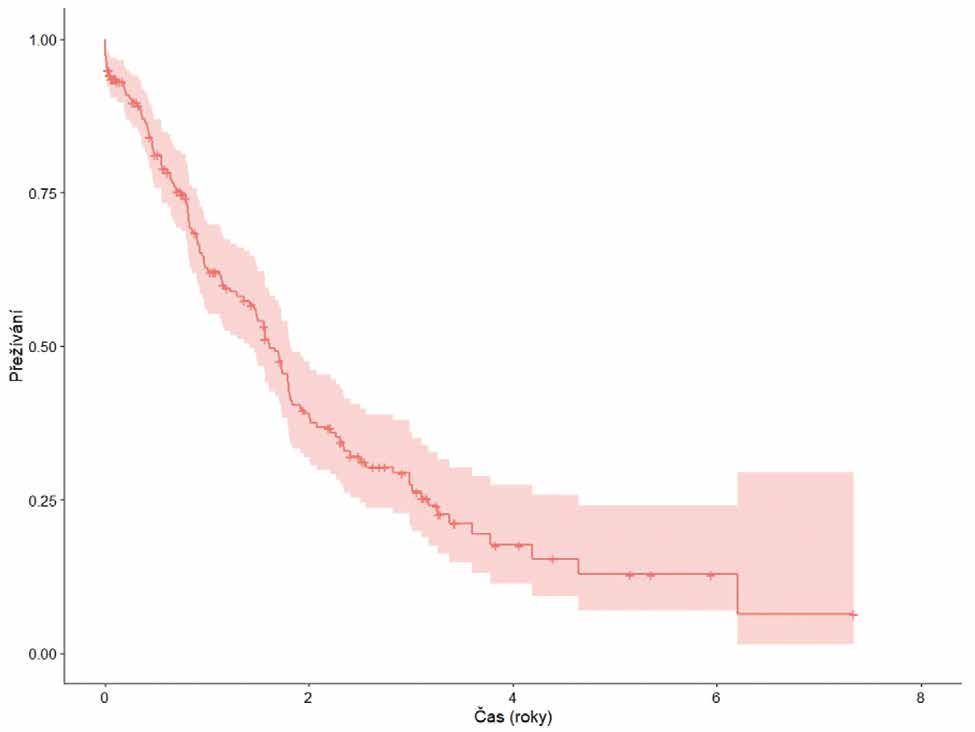Abstract
Introduction: The aim of the study was to summarize the results of pancreatic surgery over a ten-year period at the surgical department of the university hospital Kralovske Vinohrady and analyse the prognostic factors of pancreatic ductal adenocarcinoma.
Methods: From October 2012 to December 2022, 331 patients underwent proximal pancreatectomy, 142 patients underwent distal pancreatectomy, and 84 patients underwent total pancreatectomy. Of the total number of resected patients, the analysis was performed only in patients with proven findings of ductal adenocarcinoma of the pancreas (221 patients). Survival analysis was conducted using the Kaplan-Meier method, and prognostic factors were assessed using Cox analysis for these patients.
Results: The average length of hospitalization was 13 days (3–53 days). According to the Clavien-Dindo classification, 90 patients had an uncomplicated postoperative course, 65 had minor complications (grade I and II), and 66 patients had major complications (grade III-V). Based on TNM staging, 27 patients were in stage I, 136 in stage II, 41 in stage III, and 17 in stage IV. The median survival was 304 days. Overall, 1-, 2-, 3-, and 5-year survival rates were 62.7% (95% confidence interval (CI) 55.9%–70.4%), 39.0% (95% CI: 31.9–47.6%), 27.3% (95% CI: 20.7–36.0%), and 12.8% (95% CI: 6.9%–24.0%), respectively. Using the Cox model, the following negative prognostic factors were identified: severe postoperative complications, positive lymph nodes, T stage, and positive resection margins.
Conclusion: Pancreatic ductal adenocarcinoma is an aggressive tumour. Radical resection represents the only chance for long-term survival. The best results are achieved in specialized centres with a high volume of pancreatic resections.

